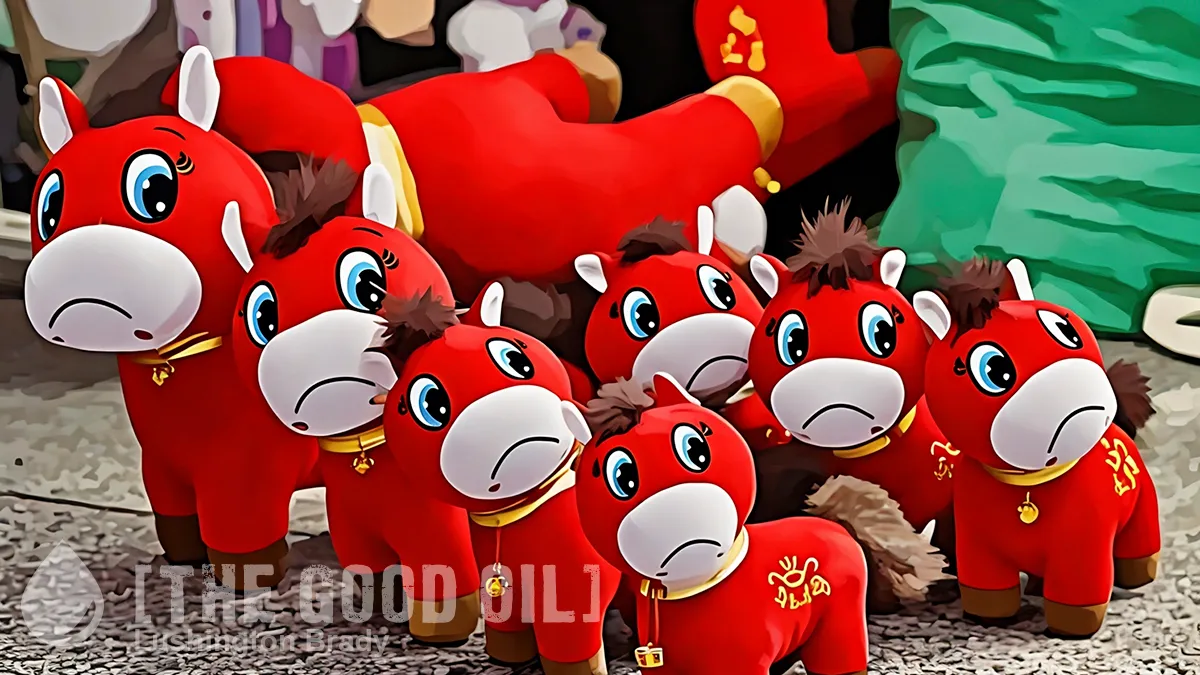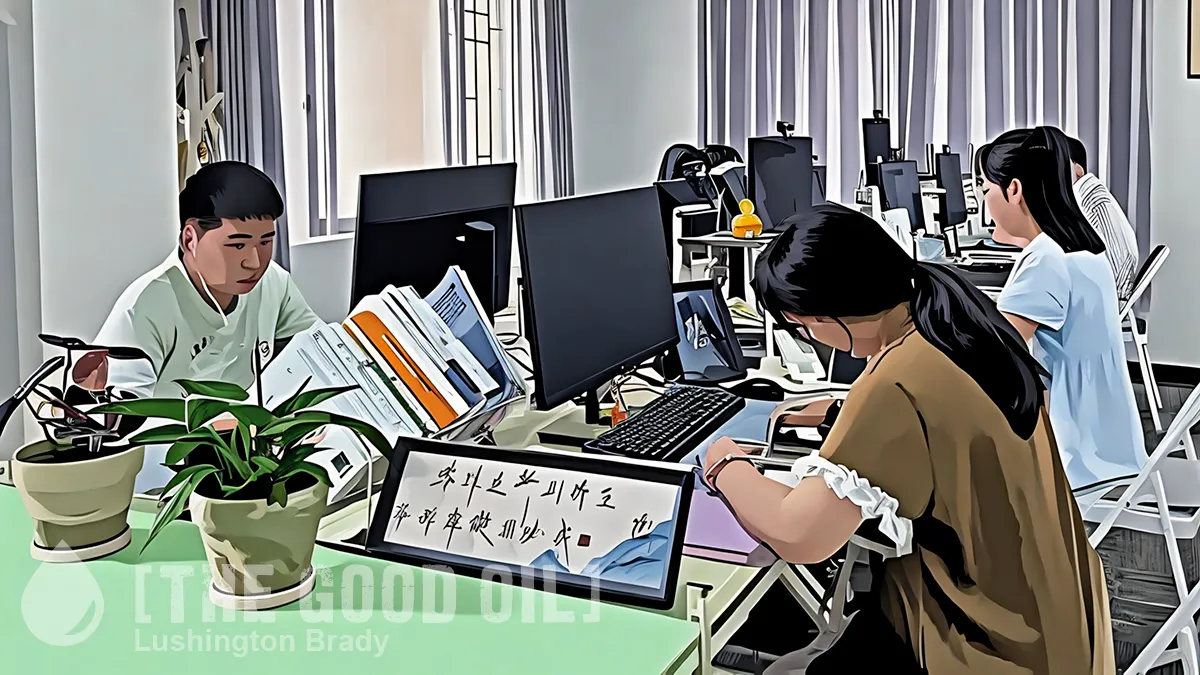Table of Contents
Louis T. March
mercatornet.comtext
Louis T. March has a background in government, business and philanthropy. A former talk show host, author and public speaker, he is a dedicated student of history and genealogy. Louis lives with his family in the beautiful Shenandoah Valley of Virginia.
In April 2021, something happened in China that garnered international media attention, and then only seemed to go away. But it hasn’t gone away at all.
Lying Flat
Listening to bureaucrats discuss the need for more babies to fix a dire demographic crisis, young Luo Huazhong was inspired. Under the username “Kind-Hearted Traveller,” he posted a message on Baidu Tieba, China’s largest web-based community with 1.5 billion registered users.
His message? “Lying Flat is Justice”
Those people who say lying down is shameful are shameless. I have the right to choose a slow lifestyle. I didn’t do anything destructive to society. Do we have to work 12 hours a day in a sweatshop, and is that justice?
[…] I can just sleep in my barrel enjoying a sunbath like Diogenes, or live in a cave-like Heraclitus and think about ‘Logos’. Since there has never really been a trend of thought that exalts human subjectivity in this land, I can create it for myself. Lying flat is my wise movement, only by lying down can humans become the measure of all things.
The post went viral. Lying flat, aka tang ping, suddenly became a “thing” for young Chinese. Tee shirts saying “Do nothing lie flat youth” appeared. The South China Morning Post described it this way:
“Lying flat” essentially means doing the bare minimum to get by, and striving for nothing more than what is absolutely essential for one’s survival.
It represents the mindset of lying down instead of being a productive member of society. Rather than striving to study hard, buy a home, or even start a family, a subsection of society is rejecting it all to lie flat.
Some have dubbed it a manifesto against materialism, some suspect it is simply being lazy, and others say this type of defeatist attitude is an inevitable result when people become so overwhelmed and dismayed by the notion of working themselves to the bone that they feel there is no other option but to give up.
The New York Times said this:
To lie flat means to forgo marriage, not have children, stay unemployed and eschew material wants such as a house or a car. It is the opposite of what China’s leaders have asked of their people.
China’s younger generation is not on track to live better than their parents. Welcome to globalism’s declining living standards club! In today’s upside-down world, some see forswearing marriage and children as the way to deal with it.
Lying flat is reminiscent of America’s “Great Resignation”. Mr Luo explained how he made his decision:
“After working for so long, I just felt numb, like a machine, and so I resigned… I have been chilling. I don’t feel like there’s anything wrong.”
Chilling? That is lying flat. It does not come easy to overworked Chinese.
But as lying flat went viral, authorities intervened. Mr Luo’s post was deleted, social media censored and discussion groups shut down. Yet millions of Chinese students and workers declared themselves “lying flat youth.”
By October, 2021, Chairman Xi Jin Ping had weighed in via Qiushi, a major Communist Party journal:
It is necessary to prevent the stagnation of the social class, unblock the channels for upward social mobility, create opportunities for more people to become rich, and form an environment for improvement in which everyone participates, avoiding involution and lying flat.
(Involution, in this context, is essentially shrinking through inactivity).
Let It Rot
Suppression of lying flat only increased its appeal. Soon there appeared a more popular meme: let it rot, aka bai lan. The message? Forget about the rat race, buying a house, getting married or having children. Live not by a dysfunctional society’s expectations. Live for yourself.
Professor Mary Gallagher, Director of the Center for Chinese Studies at the University of Michigan, explains bai lan:
It is a bit like the ‘slacker’ generation in America in the 1990s. And like ‘tang ping’ last year, it is also a rejection against the ultra-competitiveness of today’s Chinese society.
Commentator Dr Gavin Sin Hin Chiu voiced this concern:
If it [lying flat] becomes widespread, it will affect young people’s expectations of income growth, consumption, marriage and childbirth, which will be detrimental to China’s ability to avoid the middle-income trap, where growth stagnates and incomes stall.
The rebellion caught the attention of international finance. Analysts at the Asian powerhouse Nomura Securities:
Falling social mobility, as a result of widening wealth inequality, is sowing the seeds of discontent, especially among younger people, who have higher expectations after observing the vast amounts of wealth accumulated in cities…
The lying-flat movement, which calls on young people to opt out of the struggle for workplace success and to resist the attractions of consumer fulfilment, is a direct extension of this discontent.
Counterculture?
Lying flat/let it rot is rousing a nascent counterculture, a repudiation of the “Chinese Dream.” It has been compared to the West’s 1960s hippie movement where young people “dropped out” and adopted a promiscuous lifestyle. Fuelled by the anti-Vietnam War movement, they adopted a drug culture, which became mainstream. That and having no children are precisely what concerns the Chinese government.
State media has condemned the emerging counterculture. The Global Times commented:
“Young people are the hope of this country. Neither they themselves, nor the country, will allow them to collectively lie flat.”
But consider what has given rise to China’s lying flat/let it rot rebellion:
- After decades of phenomenal growth, the economy has slowed.
- Population is declining. The government is going all out to boost fertility.
- China is ageing. Already 15% of the population is 65 and older.
- With a shrinking labour force, unemployment among the 16-24 cohort is almost 20%.
- China is the second most expensive country to raise children, behind South Korea. Raising a child to age 18 costs US$76,000, 6.9 times current per capita GDP. It is even more expensive in large cities: US$150,000 in Shanghai. By comparison, average US child-rearing costs are 4.1 times per capita GDP.
- Traditional Chinese want to continue the family line. A son is expected to look after parents in old age. But many young Chinese are not even dating. As a result, “dating markets” where middle-aged parents recruit potential mates for their offspring, are flourishing.
- Complicating matters is a skewed sex ratio, with 112 males for every 100 females.
- With a robust work ethic, the economy runs on a hyper-competitive workaholic treadmill aka “966” (nine to six, six days a week).
All this means tremendous pressure on the younger generation: pressure to work hard and be successful, pressure to buy a house to get married and pressure to raise children, all incredibly expensive. Millions are locked into immobility between high costs and high-pressure jobs.
In the rat race, employees are treated like equipment, wages are suppressed and worker abuse rewarded. America’s Great Resignation, a reaction to exactly that, was eminently understandable. Little wonder that China has something similar.
But forswearing family life is another matter. In modernity’s abominable produce-and-consume madness, family and children are monetised along with everything else. But if the material aspect is all you know — the full extent of your consciousness, bereft of faith — it is understandable, sadly, that you would want to go it alone.
It’s a mammon-worship thing, and it’s not just in China. Something’s got to give.









